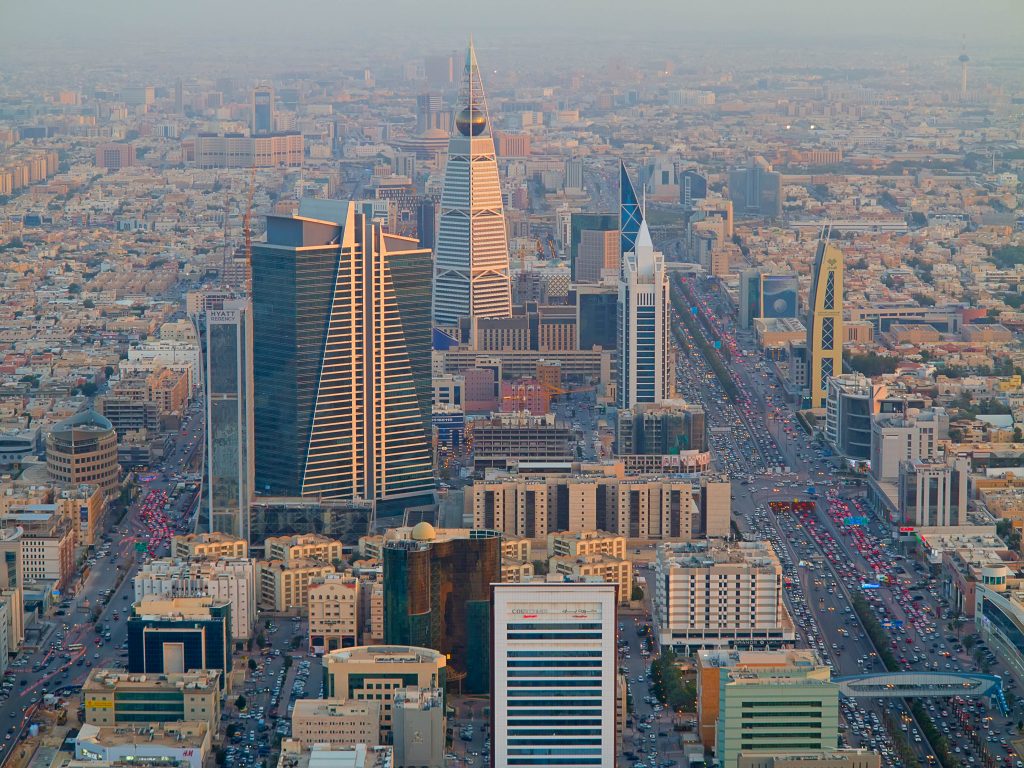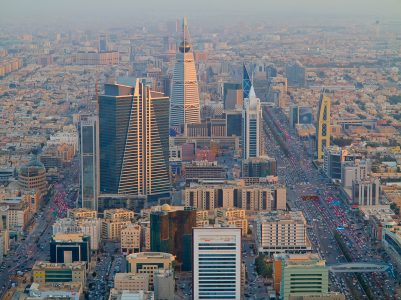A speech by KAICIID Secretary General H.E. Mr. Faisal bin Muaammar, who spearheaded KAICIID’s key partnership with the G20 Interfaith Forum in 2020 for the Saudi Arabia event.
Ladies and gentlemen, esteemed religious leaders, it is an honour for me to be present with you today. As the G20 Presidency passes from the Kingdom of Saudi Arabia to the Italian Republic, we meet to mark the corresponding formal transition of the G20 Interfaith Forum 2021.
Allow me to begin by expressing my deepest congratulations to those key figures who have been instrumental in convening this platform of interreligious dialogue for so many years now, Dr. Cole Durham and Dr. Katherine Marshall in particular. I also extend my best wishes to Professor Alberto Melloni, whose stewardship is so vital in making next year’s event the success we all know it will be.
Your hard work in service to interfaith dialogue has made the IF20 into an effective and compelling advisory body for the policymakers and world leaders of the G20 Summit. You have been able, over many years, to bring the voices of religious leaders and religious communities from all corners of the world to the arena where G20 policy is discussed and determined. KAICIID is proud to have walked this journey with you.
KAICIID and the 2020 G20 Interfaith Forum
The IF20 process holds a special importance for me for many reasons, not least of which is the fact that KAICIID was born from an initiative by the Kingdom of Saudi Arabia, on behalf of the Islamic World, to reach out to other faiths in pursuit of transnational intercultural and interreligious dialogue. The Interfaith Forum in Saudi Arabia, therefore, represented for KAICIID an opportunity to marry the two primary motives behind the Centre’s mandate: deeper dialogue between religious leaders and policy makers, and between the perspectives and practices of different global religious and cultural communities. I would also like to express here my gratitude to the Kingdom of Saudi Arabia, and the Custodian of the Two Holy Mosques, for their support and hospitality in the implementation of the Interfaith Forum.
It would have been my personal privilege, as well as my country’s, to have hosted the largest physical interreligious gathering in the history of the Kingdom in Riyadh in October—a powerful sign of the commitment of the Kingdom to interreligious dialogue. The COVID-19 pandemic threw all our plans into disarray, however, making a physical meeting impossible, and indeed, for a time, threatening the event itself.
However, the problems caused by COVID-19 have taught us the valuable lessons of cooperation, and the need to unite before a common challenge. I am proud to say that the Road to Riyadh 2020, as I like to call it, rose to the challenge. This Interfaith Forum was marked by the most inclusive, diverse and wide-ranging consultative process as yet seen in any Interfaith Forum, thanks to the programmatic networks, platforms and relationships built up by KAICIID and our partners around the world. I would like to express my thanks to the staff and teams of all the partner organizations, and the countless experts and participants who gave freely of their time and expertise, united by their conviction in the importance of the forum.

The Road to Riyadh
The story began in July, with the first consultation between religious leaders, faith-based experts and policymakers in the Arab Region.
It continued with consultations involving a total of 500 participants, representing 10 faith traditions in 70 countries on five continents, with special attention paid to ensuring the representation of women and youth.
The “Road to Riyadh” has wound its way through Asia, North America, Latin America, Europe, and the Middle East in a series of consultations on some of the most pressing challenges in the field of human development.
Though virtual, these consultations did not lack passion, urgency or direction.
We heard powerful testimony on themes being considered by this Forum—on the effects of climate change, gender inequality, economic imbalance and poor governance.
We also heard about the central role religious leaders from different faiths, united by common principles of tolerance and peace, have to play in shaping the destiny of the human family.
Each regional consultation brought to the Forum a series of recommendations, within the framework of the UN’s Sustainable Development Goals, which testify to the relevance of religion, religious leaders, and faith-based organisations to the wider narrative of human development.
I am pleased to report that the stellar work of the organizing committee has been gratefully received by the G20 Presidency of the Kingdom of Saudi Arabia, whose greetings I bring to this gathering. The recommendations produced by the Forum have been received by the G20 Sherpa, who has also expressed his support, and that of the Saudi G20 Presidency, for the recognition of the G20 Interfaith Forum as a formal engagement group to the G20. The recommendations of the G20 Interfaith Forum have also been delivered to the government of the Kingdom of Saudi Arabia, and have been welcomed during a Royal Count Meeting lead by the Custodian of the Two Holy Mosques, His Majesty King Salman bin Abdulaziz Al Saud, in which the Royal Court expressed gratitude for the success of the G20 Interfaith Forum and for hosting such an important initiative.
Guiding Principles for the 2021 Italy Hosts
As we look forward to the G20 Interfaith Forum in 2021, I’d like to highlight some lessons learned, and guiding principles, which I hope can inform our work going forward:
The first two principles I believe we should adopt are inclusivity and partnership.
Partnership around the G20 Interfaith Forum needs to begin from the ground up, involving and hearing from as many faith-based actors as possible. In the organization of such an event, as well, there is no substitute for a multi-level, multi-sectoral partnership. It is true that the wider the partnership, the more challenging the process, but if you adopt the principle and value of flexibility in planning and negotiating needs and concerns of all partners from design to implementation, the benefits outweigh the costs.
The G20 Interfaith Forum is not an event. It is a cumulative process that starts before, and goes beyond, the summit itself. So, I would emphasize the need for a clear plan that examines how the Forum can build on what has been achieved and take it forward into next year.
The power of the G20 Interfaith Forum, and its unique value to G20 policymakers, lies in its capacity to bring religious leaders and institutions into a sustained dialogue with policymaking institutions.
Ladies and gentlemen, esteemed religious leaders, as the stewardship of the G20 passes from Saudi Arabia to Italy, I think back to how, in 2007, a meeting between the late Custodian of the Two Holy Mosques, King Adbullah bin Abdulaziz, and then-Pope Benedict XVI, rejuvenated the dialogue between the Islamic and Christian worlds, lighting the way to a newfound trust based on mutual understanding. This is the power that religious leaders hold, the moral and ethical guardianship that they carry, as a source of wisdom for policymakers. We very much look forward to joining you, hopefully physically, in Bologna in 2021, for the G20 Interfaith Forum 2021, to build on this role.
Thank you.
– – –
For decades, Faisal bin Muaammar has promoted interreligious tolerance, built intercultural understanding through local and international inter-community institutions and overseen knowledge building initiatives. He is currently founder and Secretary General of two organizations focused on enhancing understanding and knowledge: the International Dialogue Centre (KAICIID) in Vienna, and the King Abdulaziz Public Library (KAPL) in Riyadh.


